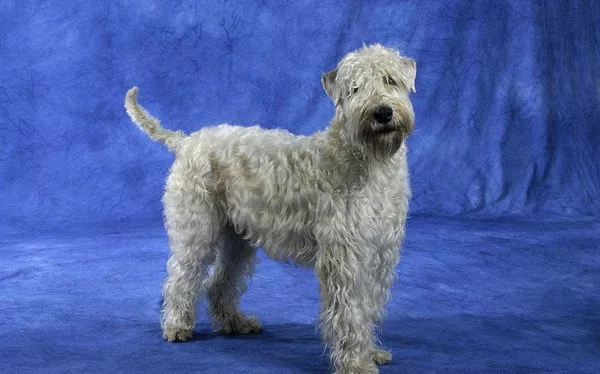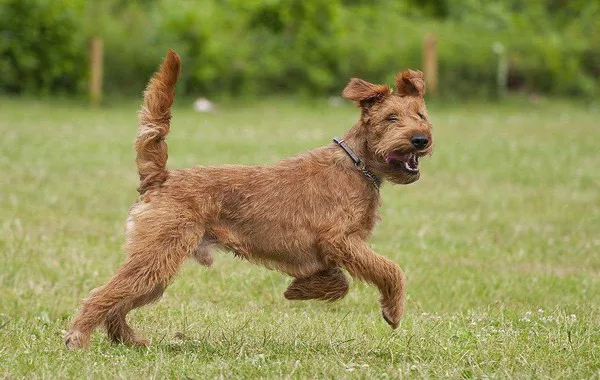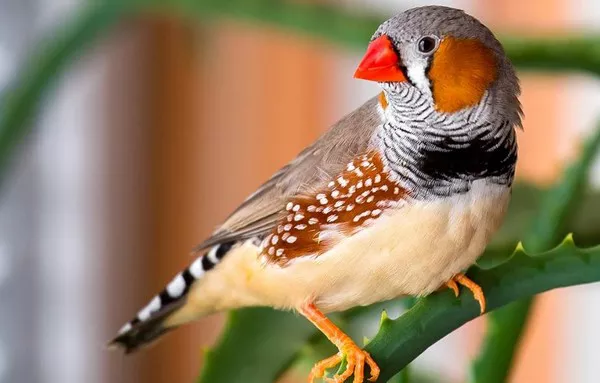Airedale Terriers, often called the “King of Terriers,” are one of the oldest and most respected terrier breeds, known for their intelligence, independence, and distinctive appearance. These dogs have a unique blend of strengths and challenges when it comes to training, making them both rewarding and occasionally tricky for pet owners. In this article, we’ll delve into the characteristics of Airedale Terriers, explore the reasons behind their training difficulties, and provide you with effective strategies to train them successfully.
Understanding the Airedale Terrier
The Airedale Terrier is a large and strong dog breed, originally bred in the Aire Valley of England. Their history dates back to the early 1800s, where they were used for hunting otters, badgers, and even larger game. They were also bred to work alongside humans, showcasing their ability to think independently while remaining loyal and protective. This combination of intelligence, independence, and energy contributes to both the challenges and rewards that come with training an Airedale.
In terms of appearance, Airedales are known for their distinctive coat—a dense, wiry texture that requires regular grooming to maintain its health. They stand about 22–23 inches tall at the shoulder and typically weigh between 40 to 65 pounds. Their long, straight back, strong frame, and high energy levels make them quite active and require a good deal of exercise and mental stimulation.
The Temperament of Airedale Terriers
Before diving into the specifics of training Airedales, it’s important to understand their temperament. Airedales are naturally intelligent, independent, and confident dogs. These qualities are both an asset and a challenge when it comes to training.
Intelligence: Airedales are very smart dogs and can learn commands quickly when they are motivated. Their intelligence allows them to solve problems and think on their feet, but it can also lead to stubbornness if they feel that a command is unnecessary or uninteresting.
Independence: Airedales were bred to work on their own and make decisions in the field without constant human direction. This independent streak can make them less eager to please than some other breeds, which means they may not always respond to training methods that rely heavily on obedience.
Energy and Playfulness: Airedales are full of energy, and they tend to be playful and curious. While their energy can make them fun companions, it also means they need to engage in plenty of physical and mental activities. Without adequate stimulation, they may become bored, which could lead to destructive behavior.
Loyalty and Protectiveness: Airedales are known for their loyalty to their families. While they are generally friendly, they can be reserved or protective around strangers. This protective instinct can sometimes translate into territorial behavior, making socialization a critical component of their training.
Why Are Airedale Terriers Considered Difficult to Train?
Training an Airedale Terrier can be challenging for several reasons, and it’s important for pet owners to recognize these traits so they can address them effectively:
Stubbornness: Airedales are independent thinkers, which means they may resist following commands that they don’t see as important or beneficial. Unlike some dogs that are eager to please their owners, Airedales are more likely to make up their own mind about whether or not they will comply.
High Energy Levels: Airedales require a lot of physical activity and mental stimulation to remain happy and well-behaved. Without enough exercise, they may become frustrated and display undesirable behaviors like excessive barking or chewing.
Strong Prey Drive: Airedales were bred as hunting dogs, and they retain a strong prey drive. They may be inclined to chase after small animals, which can make off-leash training challenging. Their natural hunting instincts also mean they may be easily distracted during training sessions.
Need for Early Socialization: Airedales can be reserved or even aggressive towards strangers or other animals if not properly socialized from an early age. Socialization is a crucial part of training to help them become well-rounded and confident dogs. Without it, they may become wary or reactive, which complicates training efforts.
Lack of Motivation: Unlike some breeds that are highly food-driven or eager to please, Airedales may not be as motivated by treats or praise. This can make training more difficult, as they may not always respond to conventional reinforcement methods.
Effective Training Strategies for Airedale Terriers
While Airedale Terriers may present some unique challenges during training, they are by no means impossible to train. With the right approach, patience, and consistency, you can help your Airedale develop good habits and be a well-behaved companion. Here are some proven strategies for training Airedale Terriers:
1. Start Early
As with any breed, early socialization and training are key to raising a well-adjusted Airedale. Start training your Airedale as a puppy, ideally between 8 to 16 weeks of age, when they are most receptive to new experiences and learning. Introduce them to a variety of people, animals, environments, and situations to help them become more adaptable and less reactive as adults.
Socialization is critical for Airedales because they can be wary of strangers or unfamiliar situations. Early exposure to different experiences will help reduce anxiety and prevent behavioral problems in the future. Puppy classes, walks in busy areas, and playdates with other dogs are great ways to socialize your Airedale.
2. Use Positive Reinforcement
Airedales respond best to positive reinforcement, especially if you make training sessions enjoyable and rewarding. Use treats, praise, and play as rewards when your Airedale successfully follows a command. It’s important to focus on reinforcing desirable behaviors rather than punishing undesirable ones.
Since Airedales can be somewhat independent, they might not always be motivated by food alone. In such cases, combining food rewards with their favorite toys or games can help keep them engaged. For example, if your Airedale loves to play fetch, use a game of fetch as a reward for following commands.
Keep in mind that Airedales can become bored easily, so training sessions should be kept short and fun—around 10 to 15 minutes at a time. Use variety in your training methods to keep your dog’s attention. Changing up commands, introducing new tricks, and offering different types of rewards will keep the process engaging.
3. Be Consistent
Consistency is crucial when training an Airedale. This breed thrives on routine and structure, and inconsistent commands or rewards can confuse them. Establish clear rules from the beginning and stick to them. If you allow certain behaviors sometimes but not others (such as jumping on furniture or begging at the table), your Airedale will quickly become confused about what is expected of them.
Be consistent in your commands, tone of voice, and training methods. This will help your Airedale understand what you want from them and reinforce positive behaviors over time.
4. Provide Adequate Exercise
Airedales have high energy levels and require a lot of physical exercise to stay healthy and happy. Regular walks, runs, or play sessions are essential to keep them from becoming bored or destructive. Additionally, mental stimulation is just as important as physical exercise for this intelligent breed.
Engage your Airedale in activities like puzzle games, obedience training, or scent work to challenge their minds. These activities help to burn off excess energy while keeping their brains engaged. Without enough exercise, an Airedale may resort to undesirable behaviors like digging, barking, or chewing.
5. Be Patient and Use Firm but Gentle Leadership
Airedales require a firm but gentle approach to training. While they may not respond well to harsh methods or intimidation, they do need strong leadership. Establish yourself as the “alpha” in a calm and confident manner. Your Airedale needs to know that you are in charge, but this should be done without aggression or punishment.
Patience is essential when training an Airedale. They may not always follow commands right away, especially if they are distracted or disinterested. Stay calm, and give them time to process and respond. If you remain patient and consistent, they will learn over time.
6. Work on Recall and Leash Training
Airedales have a strong prey drive, and their tendency to chase small animals can make off-leash training challenging. Start with basic recall training early on, teaching your Airedale to come when called. Use a long leash or a safe, enclosed space when practicing recall to prevent them from running off.
Leash training is equally important for Airedales, especially since they are large and strong dogs. Begin by getting your Airedale accustomed to wearing a leash and walking calmly by your side. Reward them for walking with a loose leash, and avoid yanking or jerking the leash, as this can cause frustration.
7. Seek Professional Help if Needed
If you encounter significant training challenges with your Airedale, don’t hesitate to seek professional help. A professional dog trainer can provide expert guidance, especially if you’re struggling with specific behavioral issues or advanced training techniques. Look for trainers who have experience with terriers, as they are more familiar with the breed’s unique traits and needs.
Conclusion
In conclusion, Airedale Terriers are not necessarily hard to train, but they do require a particular approach that takes into account their intelligence, independence, and energy levels. They can be a challenge for first-time dog owners or those who are unfamiliar with terriers, but with the right strategies—early socialization, positive reinforcement, consistency, and patience—Airedales can thrive as well-behaved and loyal companions.
While Airedales may not be the easiest breed to train, they are certainly trainable and can make excellent pets for the right owner. If you approach their training with understanding and dedication, you’ll find that Airedales are capable of becoming well-behaved and joyful members of the family.
Related Topics:






















